Travel Vaccine Advice for a Trip to Southeast Asia
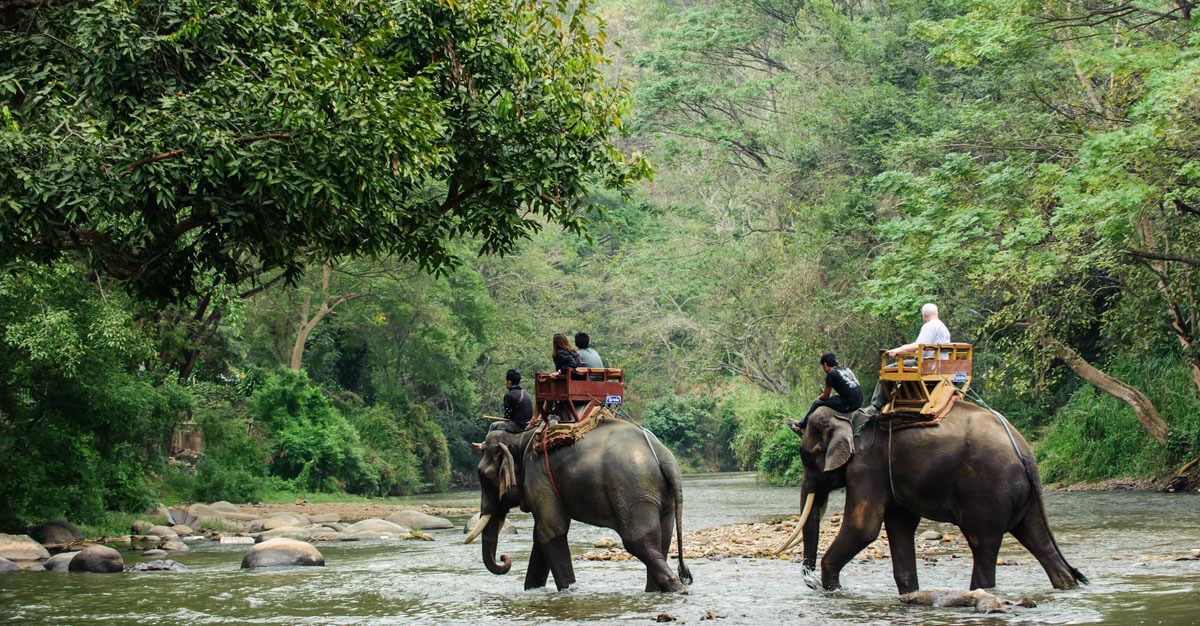
What Vaccines Do I Need for Traveling to Southeast Asia?
Home to Jakarta, Indonesia; Ho Chi Minh City, Vietnam; and Bangkok, Thailand, Southeast Asia is a very popular destination for travelers. Prior to the COVID-19 pandemic in 2019, almost 40 million tourists visited Thailand, more than 26 million vacationed in Malaysia, and over 19 million spent time in Singapore.
If you plan to visit Southeast Asia in the coming months, there are some precautions you should take to make sure you stay safe and healthy on your journey. Let’s discuss recommended vaccinations and other tips to help make sure you bring only happy memories back from your trip.
Recommended Vaccinations
In general, the U.S. Centers for Disease Control and Prevention (CDC) recommends the following vaccinations before traveling to Southeast Asian countries such as Malaysia, Thailand, Indonesia, and Vietnam:
The CDC also recommends travelers update their routine vaccinations for the following diseases:
Southeast Asia Traveling Tips
Updating your vaccines is just one way to protect yourself from disease while traveling. Here are some other tips to follow when wandering through the beautiful countries, cities, and towns of Southeast Asia.
Avoid Contaminated Water
Different areas of the world have different standards for their water. Some countries in Southeast Asia are at a higher risk of having contaminated water. This can cause travelers’ diarrhea — a bacterial infection that can be very serious for older adults or people with chronic diseases.
When traveling, a good rule of thumb is to always drink bottled water. And if you must drink tap water, make sure you have a filter to use to help remove any bacteria before drinking.
Watch Out for Bugs
Bugs such as mosquitoes, fleas, and ticks can carry a variety of diseases such as zika, dengue, and chikungunya. As many areas of Southeast Asia have high humidity or are on the coast, these types of bugs can be more prevalent.
Protect yourself from these bugs by wearing long-sleeved clothing whenever possible, as well as a hat to protect your head. Try to sleep only in closed rooms with air conditioning or with a bed net. And use insect repellent if possible to help ward off unwanted insects.
Practice Healthy Habits
Whether it’s on a plane, train, taxi cab, boat, or subway, travelers are always exposed to more germs than anyone really wants to think about. Keep yourself healthy by keeping up with some simple healthy habits:
- Wash your hands all the time, especially before eating.
- Keep hand sanitizer with you in case you do not have access to soap and water.
- Try not to touch your mouth, nose, or eyes.
If you’ll be traveling to Southeast Asia and need to update your vaccinations, call or book online to schedule your appointment today.
Written for Passport Health by Corrie Pelc. Corrie Pelc is a freelance writer in the Dallas-Fort Worth area. She has a passion for health and wellness, having written for publications including Exceptional Parent, DAYSPA, INVISION, Eyecare Professional, and Hepatitis Magazine.
About Us
Passport Health’s blog provides travelers and travel enthusiasts with a variety of news and features. We focus on bringing the most interesting and relevant stories right to our readers. Topics range from the vaccines needed for a destination to updates on recent outbreaks, travel advice and much more. Feel free to check out some of our most popular posts, linked in the sidebar, or our most recent posts below
Vaccines for Traveling to Asia: The Complete Guide

This article gives an informative list of the vaccines necessary for traveling to China, East Asia and Southeast Asia.
Vaccines for Asia – Table of Contents
Before anything else, it is essential that you book an appointment with a specialist doctor at an approved international vaccination center or at a travel clinic (many public and private hospitals have one), preferably two months in advance of your departure date.
These are the only types of centers where you will receive up-to-date and detailed advice on all of the vaccines recommended for your trip.
General situation of vaccines
I’m sure you can remember some of the controversies around vaccination that have arisen over the past decades. In the mid-1990s, a renowned British scientist concluded that the measles vaccine could trigger diseases such as autism or colitis.
Despite the fact that he was accused of data falsification and fraud in 2010, he currently has thousands of followers who support him across the globe, through the ever-expanding anti-vaccine movement.
However, official bodies such as the WHO, the pharmaceutical industry, the scientific community, and governments actively support and promote vaccination, in line with the conclusions of the latest science on the subject.
If we cast aside the political and economic interests that can be hidden behind these types of scandals, on the individual level, it is important to consider the risks of not getting vaccinated for potentially lethal diseases before making any decision.
You also have to keep in mind that some vaccinations are subject to international regulations, such as the yellow fever vaccine. This means that countries have the power to require visitors to demonstrate that they have been vaccinated in accordance with national regulations if they want to enter the country.
This vaccine is only given at authorized international vaccination centers (check here for the list of centers in US), which provide you with an international vaccination certificate (also called a “yellow card”) recognized across the globe.
In any event, you will have to set aside a portion of your budget for vaccines, but keep in mind that the majority of these are for life, and in the worst case, you will have to remember to get a booster shot after a few years.
On the other hand, a distinction must be made between ordinary vaccination (the vaccination normally provided by governments following a specific schedule) and international vaccination (which is done when people go to another country).
Although there are slight variations, the vaccines normally given to the population in the majority of countries are the following: hepatitis B, diphtheria, tetanus, whooping cough, polio, measles, rubella, and chickenpox.
It is very important to possess and periodically go over both vaccination histories (ordinary and international). Keep in mind that a large quantity of money and effort continues to be invested in improving existing vaccines and creating new ones.
Sometimes new evidence is published recommending changes in the period of effectiveness of a vaccine or in the frequency at which booster shots should be given, for example. Because of this, before any international trip, you should consider booking an appointment with a specialist to check that you are up-to-date with all of your vaccines.
Most common international vaccines for traveling to East Asia and Southeast Asia
| Disease | Transmission method | Type of vaccine | Recommendation |
|---|---|---|---|
| Cholera | Food and water | Oral | Only if you travel to endemic areas |
| Typhoid fever | Food and water | Oral/injectable | All types of travelers |
| Hepatitis A | Food and water | Injectable | All types of travelers |
| Hepatitis B | Vertical (mother-child), sexual and blood | Injectable | All types of travelers |
| Rabies | Bites of certain animals (monkeys, dogs…) | Injectable (pre- and post-exposure) | Only for trips to areas where there is a risk of exposure to these animals |
| Tetanus | Via skin wounds and mucus | Injectable | All types of travelers |
| Japanese encephalitis | Mosquito bites | Injectable | Depends on your itinerary |
| Meningococcal meningitis | Inhaled | Injectable | For certain exceptional situations |
This table shows the vaccines recommended for traveling to Asia by the Centers for Disease Control and Prevention (CDC), the leading institution in the world in terms of international vaccination.
To summarize, the most commonly recommended vaccines are typhoid fever, tetanus, and hepatitis A and B. The latter is routinely given in many countries, but in any case, carefully go over your medical records and vaccination cards.
If you are not up to date, the best thing to do is to check with your family doctor. It’s possible to find out which vaccines you have through a blood test (which looks for the presence of antibodies).
Returning to the table, whether or not to get optional vaccines will depend on your itinerary, the duration of your trip, the sanitary conditions of your destination country, your age and your state of health, as well as the type of trip you are planning (adventure, business, volunteer work, family, etc.).
Because of this, it’s important to manage your vaccines long enough in advance, because in addition to potential waiting lists at authorized centers, some vaccines take up to three weeks to become effective.
Because of this, as suggested at the beginning of this article, the best thing is to start the procedure two months before your trip.
Other diseases to consider
Yellow fever
This is a notifiable disease according to international regulations and is transmitted via the bite of an infected mosquito. “Notifiable” means that it is necessary to demonstrate that you are vaccinated to enter certain countries.
China and countries in Southeast Asia require travelers coming from countries endemic with yellow fever to present their international vaccination card containing the vaccination against this tropical illness at customs.
Because the vaccine takes ten days to become effective, vaccination is only considered legal once this time period has elapsed. Currently, a single injectable dose gives immunity for your entire life.
Malaria
This is a disease that affects almost all tropical countries, including those of Southeast Asia and some of the southern provinces of China (but not Hong Kong and Macau). Just like yellow fever, it is transmitted through mosquito bites, but as opposed to yellow fever, there is currently no effective vaccine available for it.
What does exist is a preventive medication that can help mitigate the symptoms of malaria (in the event of infection). However, you should be aware that even by taking this medication, the possibility of developing malaria is not eliminated completely.
Another thing to keep in mind is that the strains of the parasite that cause illness vary from one region to another. Therefore, your route should be as clearly defined as possible in order for you to inform the international vaccination center of it.
This center is the only place where you will get precise recommendations on the prophylactic treatment of choice for the strain that you may encounter along your itinerary.
On the other hand, the majority of urban areas in the region are malaria-free. Therefore, if there isn’t a tangible risk, it’s most likely that your doctor won’t prescribe this treatment for you. The dosage schedule is strict and is followed before, during and after the trip, and the treatment is known for its side effects.
Dengue
This is a viral infection once again transmitted by mosquito bites. It is also present in the majority of countries in Southeast Asia. It does not have a vaccine, and prevention is exclusively based on protection against mosquito bites.
This virus is fairly similar to the dengue virus. Zika also carries the recommendation that pregnant women abstain from traveling to countries where cases of Zika have been recorded. The transmission of the virus to fetal blood can cause irreversible damage.
Coronavirus Covid-19
Currently, there is no vaccine for the new coronavirus (COVID-19). However, and due to the global impact that this epidemic is having, the epicenter of which is in Wuhan (China), the scientific community is currently searching for an effective vaccine.
In any event, it is not expected to see the light of day for at least a year. Up until then, people are recommended to take extreme measures to avoid contagion, which takes place via inhalation. These measures include avoiding traveling to areas that are active hotbeds of disease transmission.
Currently, countries in Southeast Asia do not have restrictions on travelers related to the coronavirus. In any event, and considering the speed at which the virus is propagating, it is a good idea to confirm the current number of cases in the country that you plan to visit.
Last of all, you should keep in mind that some countries are applying restrictions to travelers coming from China. Therefore, check the order of your itinerary to avoid problems at customs.
Precautions after your trip
Some infectious diseases do not present immediately, and can even show up a long time after you go back home. For any symptoms, it’s best to go to your family doctor and inform them of your itinerary and the dates of all of your trips over the past 12 months.
Photo Credits: Photo by fotoblend on Pixabay
Leave a Reply Cancel reply
Topics
Need help for organizing your trip to Asia?
Copyright Sapore di Cina | Disclosure | Privacy & Cookies Policy | Terms and Conditions
To offer you a better experience, this site uses cookies. To learn more and manage your preferences, see our cookie policy
Privacy Overview
This website uses cookies to improve your experience while you navigate through the website. Out of these, the cookies that are categorized as necessary are stored on your browser as they are essential for the working of basic functionalities of the website. We also use third-party cookies that help us analyze and understand how you use this website. These cookies will be stored in your browser only with your consent. You also have the option to opt-out of these cookies. But opting out of some of these cookies may affect your browsing experience.
Necessary cookies are absolutely essential for the website to function properly. These cookies ensure basic functionalities and security features of the website, anonymously.
| Cookie | Duration | Description |
|---|---|---|
| apbct_cookies_test | session | CleanTalk sets this cookie to prevent spam on comments and forms and act as a complete anti-spam solution and firewall for the site. |
| apbct_page_hits | session | CleanTalk sets this cookie to prevent spam on comments and forms and act as a complete anti-spam solution and firewall for the site. |
| apbct_prev_referer | session | Functional cookie placed by CleanTalk Spam Protect to store referring IDs and prevent unauthorized spam from being sent from the website. |
| apbct_site_landing_ts | session | CleanTalk sets this cookie to prevent spam on comments and forms and act as a complete anti-spam solution and firewall for the site. |
| apbct_site_referer | 3 days | This cookie is placed by CleanTalk Spam Protect to prevent spam and to store the referrer page address which led the user to the website. |
| apbct_timestamp | session | CleanTalk sets this cookie to prevent spam on comments and forms and act as a complete anti-spam solution and firewall for the site. |
| apbct_urls | 3 days | This cookie is placed by CleanTalk Spam Protect to prevent spam and to store the addresses (urls) visited on the website. |
| apbct_visible_fields_0 | session | CleanTalk sets this cookie to prevent spam on comments and forms and act as a complete anti-spam solution and firewall for the site. |
| apbct_visible_fields_1 | session | CleanTalk sets this cookie to prevent spam on comments and forms and act as a complete anti-spam solution and firewall for the site. |
| apbct_visible_fields_3 | session | CleanTalk sets this cookie to prevent spam on comments and forms and act as a complete anti-spam solution and firewall for the site. |
| cid | never | The cid cookie helps to identify unique visitors and understand their site behaviour at different times. |
| cookielawinfo-checkbox-advertisement | 1 year | Set by the GDPR Cookie Consent plugin, this cookie is used to record the user consent for the cookies in the “Advertisement” category . |
| cookielawinfo-checkbox-analytics | 1 year | Set by the GDPR Cookie Consent plugin, this cookie is used to record the user consent for the cookies in the “Analytics” category . |
| cookielawinfo-checkbox-functional | 1 year | The cookie is set by the GDPR Cookie Consent plugin to record the user consent for the cookies in the category “Functional”. |
| cookielawinfo-checkbox-necessary | 1 year | Set by the GDPR Cookie Consent plugin, this cookie is used to record the user consent for the cookies in the “Necessary” category . |
| cookielawinfo-checkbox-others | 1 year | Set by the GDPR Cookie Consent plugin, this cookie is used to store the user consent for cookies in the category “Others”. |
| cookielawinfo-checkbox-performance | 1 year | Set by the GDPR Cookie Consent plugin, this cookie is used to store the user consent for cookies in the category “Performance”. |
| CookieLawInfoConsent | 1 year | Records the default button state of the corresponding category & the status of CCPA. It works only in coordination with the primary cookie. |
| cppro-ft-style | session | This cookie is used to track how a user has behaved on the website or a call-to-action. Events such as successful submission or closing can be tracked using cookies. |
| cppro-ft-style-temp | 1 day | This cookie is used to track how a user has behaved on the website or a call-to-action. Events such as successful submission or closing can be tracked using cookies. |
| ct_checked_emails | session | CleanTalk sets this cookie to prevent spam on comments and forms and act as a complete anti-spam solution and firewall for the site. |
| ct_checkjs | session | CleanTalk–Used to prevent spam on our comments and forms and acts as a complete anti-spam solution and firewall for this site. |
| ct_fkp_timestamp | session | CleanTalk sets this cookie to prevent spam on the site’s comments/forms, and to act as a complete anti-spam solution and firewall for the site. |
| ct_mouse_moved | session | CleanTalk sets this cookie to prevent spam on comments and forms and act as a complete anti-spam solution and firewall for the site. |
| ct_pointer_data | session | CleanTalk sets this cookie to prevent spam on the site’s comments/forms, and to act as a complete anti-spam solution and firewall for the site. |
| ct_ps_timestamp | session | CleanTalk sets this cookie to prevent spam on the site’s comments/forms, and to act as a complete anti-spam solution and firewall for the site. |
| ct_screen_info | session | CleanTalk sets this cookie to prevent spam on comments and forms and act as a complete anti-spam solution and firewall for the site. |
| ct_timezone | session | CleanTalk–Used to prevent spam on our comments and forms and acts as a complete anti-spam solution and firewall for this site. |
Functional cookies help to perform certain functionalities like sharing the content of the website on social media platforms, collect feedbacks, and other third-party features.
Performance cookies are used to understand and analyze the key performance indexes of the website which helps in delivering a better user experience for the visitors.
Analytical cookies are used to understand how visitors interact with the website. These cookies help provide information on metrics the number of visitors, bounce rate, traffic source, etc.
| Cookie | Duration | Description |
|---|---|---|
| cid | never | The cid cookie helps to identify unique visitors and understand their site behaviour at different times. |
Advertisement cookies are used to provide visitors with relevant ads and marketing campaigns. These cookies track visitors across websites and collect information to provide customized ads.
Southeast Asia Vaccines and Health Advice
Below we list some of the main vaccinations you should consider for Southeast Asia travel, as well as other health tips to make sure your travel is safe.
Disclaimer: The information presented below is general advice, but is not a substitute for medical advice from a health professional.

Why Vaccinate and Protect Your Health in Southeast Asia
Southeast Asian countries are located in tropical, sub-tropical, and equatorial regions with rainforests and jungles and for the most part significantly lower standards of health and cleanliness compared to more developed countries in the West.
All these factors combined mean that there are a range of tropical diseases that can potentially harm you, especially if you come from different parts of the world, and it is your first time.
While many locals have developed natural immunity to many diseases, particularly illnesses resulting from unsanitary street food, there are still many other conditions that can affect anyone.
In order to eliminate the risk of such diseases ruining your trip to Southeast Asia, it is recommended (and sometimes required) to get vaccinated for certain diseases in advance.
What Our Customers Said
I contacted to Bella from Asia Highlights that to buy tickets to Yi Peng Festival in Chiang Mai when i was in my country.She helped me very much.You can trust this agency, and i advice Bella as the best!!
I had booked Chiang Mai Yi Peng Sky Lantern Festival with Asia Highlight Travel, my travel advisor was Bella Kiu, the experience was great, got my tickets , communication was seamless.
I thought “no hope” in getting the tickets to Yee Peng Festival organize by CAD. Fortunately, together with Bella Liu, I managed to secure all our tickets. No one left behind. This trip to Chiang Mai will be a memorable one.
Bella was super helpful in getting my ticket to the Yi Peng festival exchanged and was very accommodating. Quick and easy transaction and received ticket within 24 hours. Good communication throughout the process.
Asia Highlights as a whole is also very informative and contains helpful advice that has helped me plan my travels in Thailand.
Albee was an absolute pleasure to work with. She responded to my suggestions readily to find suitable alternatives for my 2 week trip to Thailand with my wife. She answered all my questions promptly and thoroughly.
Belle is very professional in helping me to decide on what I can do as a solo traveller. She is very helpful and making my trip planning easy .
Albee was very prompt, professional, and responsive as a planner for our trip. She listened to our preferences and designed an experience that catered to our specific needs.
Do I Need Vaccinations?
If you come from a different continent, and have never been to Southeast Asia or nearby regions before, it is recommended that you get a few basic vaccines. Note that some travelers from specific countries (mostly in South America and Africa) may also need to show proof of vaccinations/immunity (specifically yellow fever) upon arrival.
Always check if there are any specific vaccine requirements for the country you are entering, or for the country you are coming from.
At the moment, there are no specific requirements for vaccines (except for yellow fever for travelers coming from countries where the disease is prevalent). However, there are basic vaccinations that are highly recommended.
When Should I Get Them?
It is best to get vaccines as early as possible before your trip. The sooner you get them, the better your body can reach full immunity. Also note that some vaccines require multiple injections spaced out over certain time periods.
Generally, you should visit a doctor or clinic for consultation at least two months before your trip, so around the time when you would normally begin planning your travel.
What Vaccinations Should I Get?
Most Recommended
*Note that you can get a 3-in-1 (Tetanus, Diphtheria, and Polio) vaccine.
- Hepatitis A and B: The hepatitis A virus is transmitted through contaminated food or water, and hepatitis B through bodily fluids or unsanitary needles. Both diseases are very serious, and affect thousands of people. You can get a combined vaccination of the two diseases, known as Twinrix.
- Typhoid: A potentially fatal disease also originating from unsanitary food and poor hygiene. This is one of the most essential vaccinations for Southeast Asia.
- Tetanus: A common bacterium that can enter the bloodstream from open cuts or saliva. Getting cuts during travels is not uncommon, and although this disease is somewhat easily treatable, it is best to get vaccinated.
- Diphtheria: A contagious airborne disease that infects the mucus membrane of the throat and nose.
- Polio: A common disease in children spread through bodily fluids, and which can lead to paralysis. Adults who have been vaccinated in childhood, may need boosters.
- MMR (Measles, Mumps, Rubella): The vaccine for these three diseases is mandatory for children in most of the Western world, and is normally valid for 20 years. If you have not had a second booster recently, you may need to consult a professional, or get tested for immunity.
Other Suggestions
- Rabies: Many streets and beaches in Southeast Asia will have stray dogs roaming about. Avoid contact at all costs, but as major cites have adequate hospitals and a bite is unlikely, only if you are traveling to remote areas is it recommended to be vaccinated for rabies. This is particularly recommended if you are planning to visit forests or parks with monkeys, or if you are going caving (against bats).
- Japanese Encephalitis: Not particularly common for travelers to get infected, but a serious sickness nonetheless, and can be potentially fatal. If you plan on spending prolonged periods of time in rural regions, it is best to get this vaccine.
- Cholera: Also not too common in popular Southeast Asian countries, but still a potential risk from unsanitary food or water. This vaccine can be drunk rather than injected.
- Meningitis: A disease particularly common during monsoon season.
- Malaria: There are no actual vaccines for malaria, but there is medication that can be drunk daily during your trip to significantly decrease the chance of infection. It is recommended especially for those planning to travel inside rainforests or jungles.

Other Health Advice
No matter how many vaccinations you get, there are many illnesses and conditions (big or small) that cannot be vaccinated against, and the only thing we can do, is take necessary precautions to try and avoid them.
Street Food
Of course, one of the joys of Southeast Asia is to try the unique street food sold along popular tourist destinations such as night-markets and bar-streets.
It will probably be impossible to avoid grabbing a little taste of some local street delicacies, and we wouldn’t advise not to. However, do note that first-time travelers to these regions are prone to get minor food-sicknesses from such foods.
Choose the stalls you eat from carefully (more people = probably safer), and stay away from food-carts if you can’t spot a visible refrigerator for meats.
A lot of food in such countries can also be extremely spicy, and no matter how much you think you can tolerate spiciness back home, in here it’s just not the same! Spicy food in particular can lead to upset stomachs and digestive problems, so do not overeat.
Mosquitos/Bugs
As can be expected, Southeast Asia is a place where mosquitos and similar bugs thrive, due to the ideal environmental conditions. This creates a major annoyance for travelers in the best cases, but in the worst; can lead to unfortunate illnesses.
In order to avoid both of these issues, it is recommended to use bug-repellant sprays and devices. These can be purchased in any local convenience store, and may even be provided by hotels.
At nights, it is safer to wear long-sleeved clothes despite the heat, to reduce the chance of getting bitten. Avoid leaving windows open at night while you sleep unless there is a mosquito net.
- Dengue Fever: Dengue fever is an epidemic disease in many parts of the region, and is transmitted by mosquitos. The disease is not particularly deadly (the first time), though is quite serious. Contracting it a second time, however, can be fatal. If you have had dengue fever before, you need a dengue vaccine.
- Zika: Zika virus is transmitted by mosquitos, and can become a serious illness if left untreated.
- Sandflies: As the name suggests, sandflies are found in the sand along beaches, and are particularly common in the Philippines (somewhat seasonal). Their bites can be painful, and cause rash or blisters, and can get infected if untreated.
Water
Many Southeast Asian countries’ tap water is not very clean, particularly in the less-developed countries. Do not drink water straight from the tap, and if you can, try using bottled water to brush your teeth, and close your mouth when you shower.
Other
- Scuba Diving: Many Southeast Asian countries are popular for diving, as there are gorgeous coral reefs and marine life to witness. Diving, while a fun activity, can pose some minor risks due to the pressure of the water, such as decompression sickness (“the bends”). Such complications can affect the ears and sinuses, and can worsen if followed by flights shortly after. If you have never been diving before in your home country, it may be best to avoid this activity, and try snorkeling instead. If you do wish to try it, be sure to go through a legitimate training course, and plan it so that it is not close to the date of your flight back home.
- Traveler’s disease: Traveler’s disease is a general term for discomfort, fatigue, fever, or other somewhat mild symptoms, caused by the stress of travel, dietary shifts, and jet-lag (or a combination). This can affect anyone, and can be common for non-frequent travelers. To reduce risk, try to spend the first days of your journey in a less strenuous/intense manner, and get slowly acquainted with the area first.
- Heat Stroke: Being that this region is tropical, the sun is blazing-hot throughout the day, and temperatures are mostly very high. Particularly at the beach or when trekking for long distances, always bring enough water, and replenish yourself frequently.
Further Tips
- Different vaccinations may be needed for different countries (origin or destination), and can also vary depending on time, as there are seasonal outbreaks. It is recommended to consult a doctor, travel clinic, or travel agency (of the region you are going to) in order to receive up-to-date vaccine recommendations.
- If you have a medical vaccine record booklet, keep it with your passport for all travels. Be sure to also document all the vaccinations you have received in a spreadsheet, for future reference.

Visiting Southeast Asia with Us
Asia Highlights offers a seamless trip-planning experience, helping you design the perfect trip to any country in Southeast Asia. Our knowledgeable staff will assist you in selecting destinations, accommodations and activities that best suit your requirements.
Why Travel with Asia Highlights During the Pandemic
- Tailor-made experience: All of your ideas/needs will be carefully considered to create your ideal trip.
- Worry-free planning: Your 1:1 travel consultant in Asia will take all the uncertainty out of your planning, helping you navigate any travel restrictions.
- No-risk booking: 100% refund policy! (up to 14 days before departure)

Get Inspired with Our Sample Itineraries
At Asia Highlights, we create your kind of journey — your dates, your destinations, at your pace. You can have any trip tailor made for your travel.
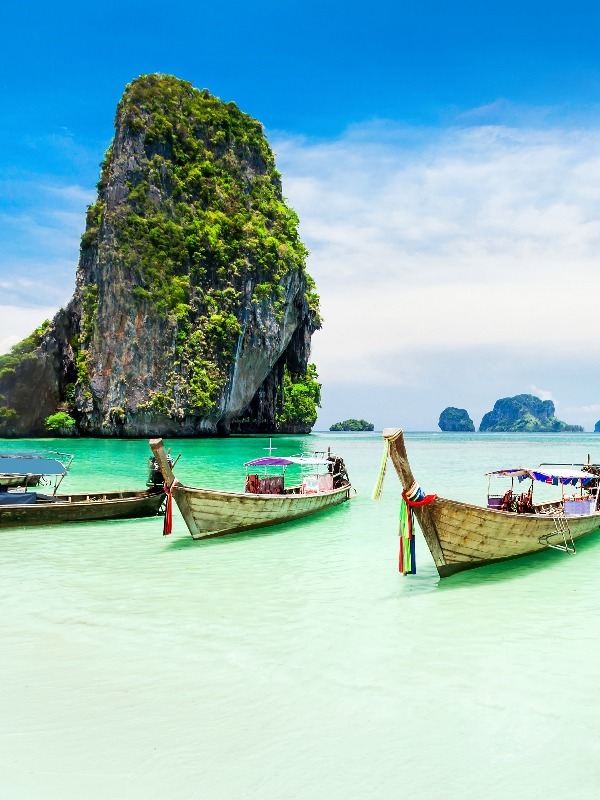
More Travel Ideas and Inspiration
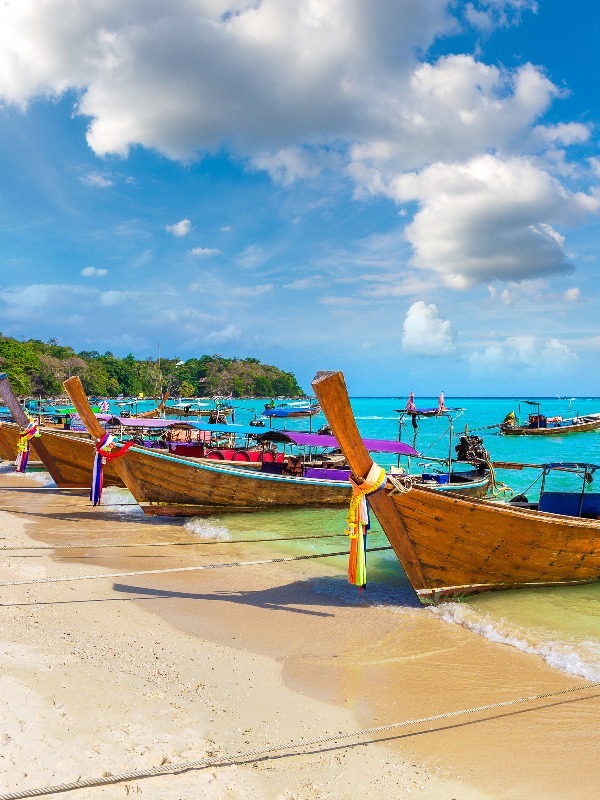
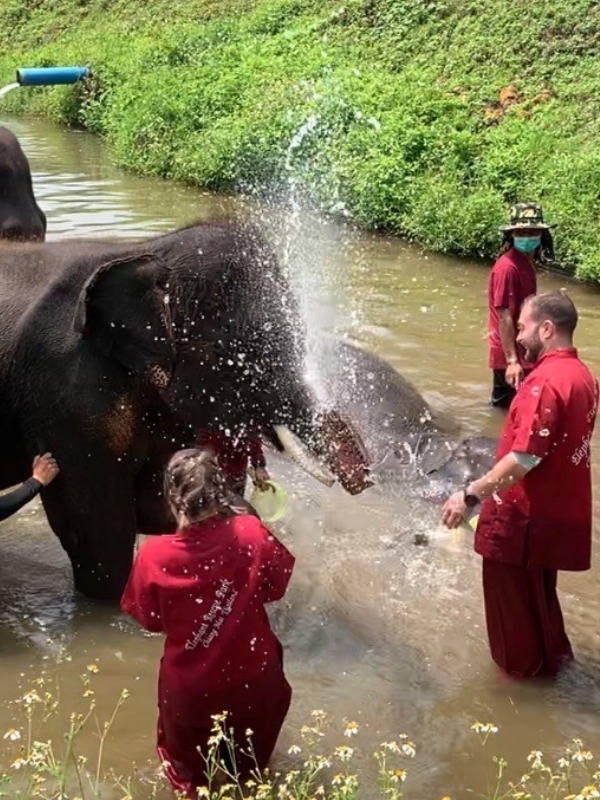
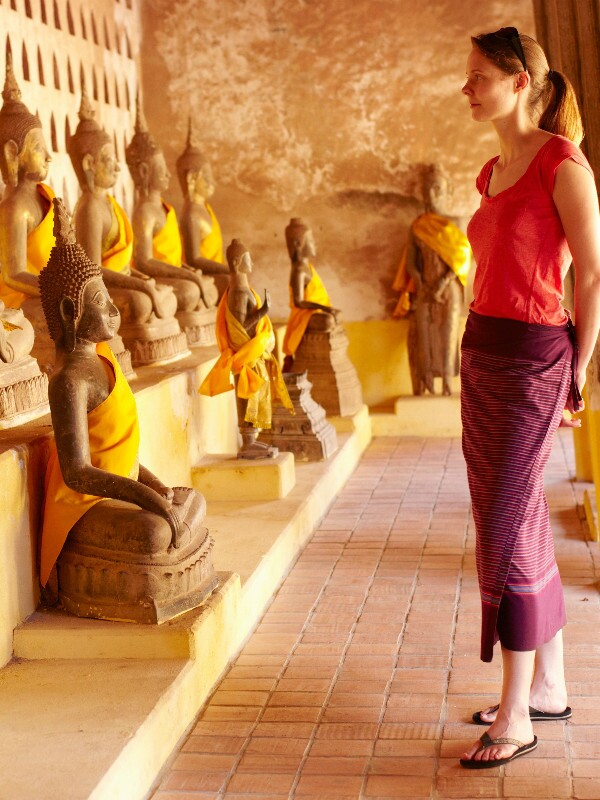
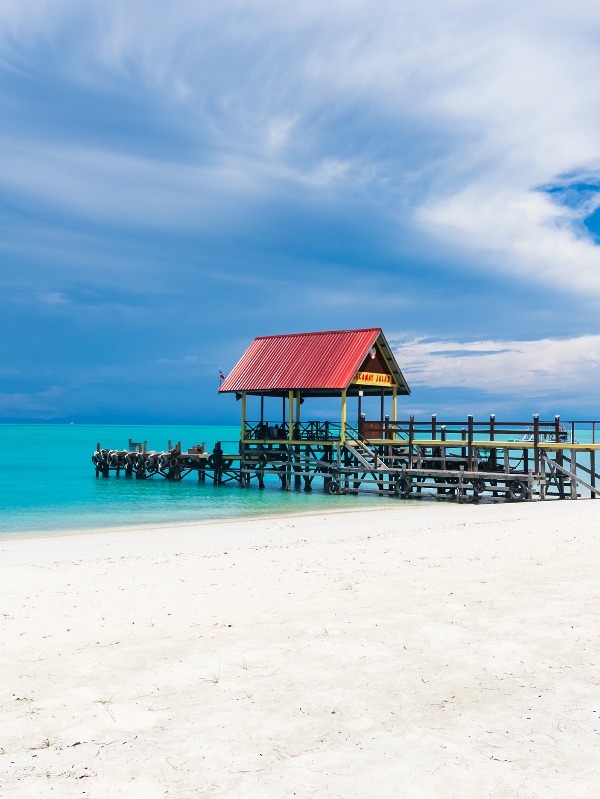

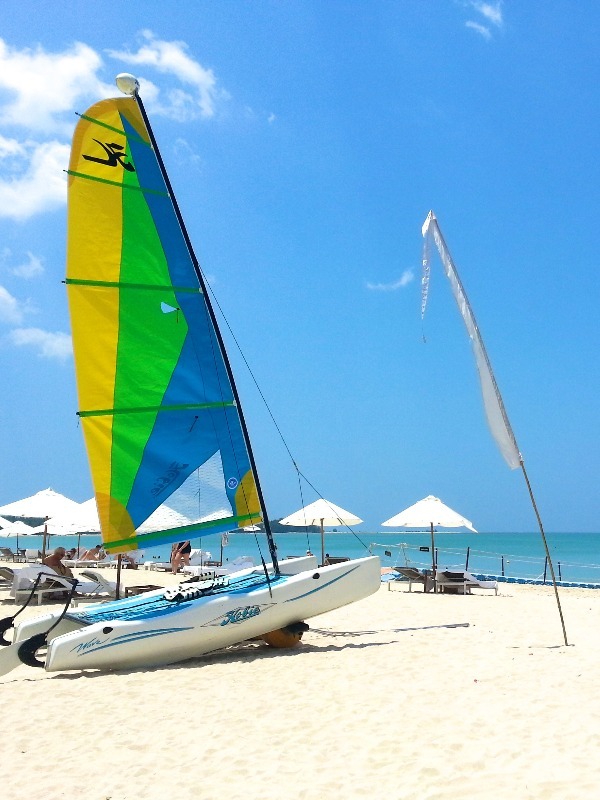
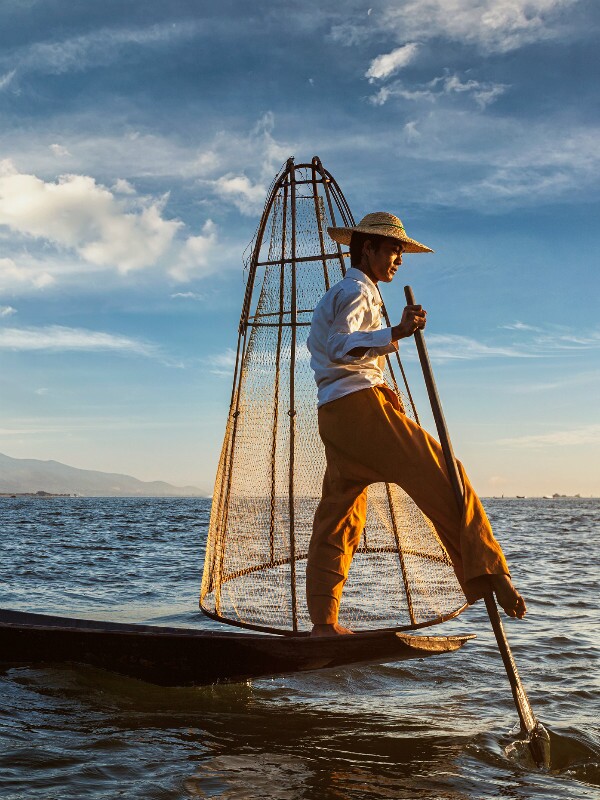
We are here to help you.
Start planning your tailor-made tour with 1-1 help from our travel advisors. Create My Trip
4.9 Excellent
The Asia Highlights Experience

1-to-1 Expert Planning
Your tour will be tailor-made to suit you by a destination expert. Your personal travel advisor will always reply within 24 hours.

Personal Journeys
Enjoy having your own personal local guide and ride. Explore destinations at your own pace. Have as much flexibility as possible.

Authentic Experiences
Go beyond the sightseeing. Understand the destinations by practicing the local culture and interacting with local people.

One-Stop Service
Leave all the booking work to us, including international and internal transportation, visas, hotels, meals, and activities.
At Asia Highlights, we create your kind of journey — your dates, your destinations, at your pace. Not just any journey, but the unique trip with the exceptional experiences you’re looking for — whether it’s a family vacation, a honeymoon, or your annual break. more .
Source https://www.passporthealthglobal.com/2022/06/travel-vaccine-advice-for-a-trip-to-southeast-asia/
Source https://www.saporedicina.com/english/vaccines-travel-asia/
Source https://www.asiahighlights.com/southeast-asia/vaccinations